In September 2021, Russ Kuhner interviewed me about my career path for the State of the Planet blog at Columbia. I think it’s worth reposting most of it here so you have a sense of my “priors” and orientation toward the intertwined climate and energy challenges facing humans. Also read a recent post exploring my approach to climate journalism (and that of journalists) by Northeastern University professor
.Ask me followup questions in the comment thread and I’ll dive deeper.
What was it about the climate crisis that first drew you to amass such a large body of work?
I certainly didn’t come into this world intending to be a climate-focused journalist. The tug comes from the diversity of scales and dimensions of the climate question. It’s every question really – technological, social, behavioral.
The deeper you dig, the richer the questions become.
In 1985, you wrote a cover story on nuclear winter for Science Digest. How did this piece help prepare you to write about global warming?
The main thing is that the computer models that were being used to assess nuclear winter were the same ones that were already being used to assess global warming.
One thing that was a very interesting learning experience for me as a young science journalist at that time was, the idea of nuclear winter is very stark, dramatic and scary.
[The late] Steve Schneider and Starley Thompson, [leading atmospheric researchers] and some other scientists dug in more on this concept. Even in the course of the time it took me to write the article, it was becoming clearer to them that it was more like “nuclear autumn.”
Nuclear autumn isn’t a front-page story, nuclear winter is a front-page story. But that’s one of the rhythms of science. The models get more refined, or you get more data, and suddenly it’s more nuanced.
A few years later, in 1988, you were a senior editor at Discover Magazine. While there, you wrote another cover story, this time on global warming. What’s changed since then in how you communicate climate stories?
My story didn’t have wildfires in it. So, fire is a big part of global warming now. The idea of abrupt change was not fully in the science yet at that point in ’88.
There were a couple of studies, [including by Columbia geochemist] Wally Broecker’s work on the “angry beast” [the climate system], that suggested there were these disruptive moments in climate, that things could happen in very short time scales. That was less a part of that 1988 story than the idea of abrupt change now.
You hear a lot about tipping points, and the Arctic was less prioritized then.
What has stayed the same since you started reporting on climate change?
The things that haven’t changed are the profound underpinnings of the climate problem. The biggest one is that we simply value energy more than we value climate risk. Energy availability by whatever means still outweighs our long-term climate concerns.
That’s powerful enough to me that I diverted.
My friend Bill McKibben diverted toward, ‘We need to have less energy, we’ve got to really tamp ourselves down,’ and he started a movement. He’s been great at all that stuff.
I became convinced that we are a high-energy species, that we’re not going to be tamped down.
Would you say that your writing is not activist journalism?
The emerging reality that humans will need more energy, not less, made me more of an activist for reality than an environmental activist.
Until energy can come from non-polluting sources, and food can come from non-deforestation sources reliably and affordably, it’s not like we’re going to change ourselves to the extent that you would need to decarbonize through shrinking us as a phenomenon on the planet.
I’ll be writing more about this soon, I think, because the whole nature of life is in pursuit of energy.
Some species do it at hydrothermal vents, deep beneath the sea. Some species do it through solar energy, and then most of the others consume those as a way to get the energy they need, and some of that is through fossilized plants and algae that we call fossil fuels.
But that’s an inconvenient story because I came of age in the ’70s and ’80s, when I was young, with the idea of environmental activism, making the case that this is a social-political problem, that we do need to change ourselves, and that many things have to change.
I just became more convinced that that path doesn’t take us anywhere near where we need to go to build a truly sustainable relationship with the climate system.
My narrative, the way I shape the story in my own head, changed too, through those years.
As your narrative was evolving, how was your career evolving?
When I came to The New York Times I was writing about regional stuff first, and then around 2000, I got back to this climate beat after writing about the Hudson River coming back.
Once I got back on the climate beat, very soon I got dug in with the energy issue, the energy challenge, and that is such a profound part of this.
The other part of the story that emerged was the climate in here [Revkin points to his head], the psychology, sociology and political science part, which I had neglected as a reporter.
You reported from the Arctic in 2003 while at The New York Times and in 2006 came out with a children’s book titled The North Pole Was Here. How did your time there inform your work?
I was actually on the sea ice at the North Pole, landing there in an airplane with scientists for three days, and sending stuff via satellite phone. It was amazing.
While I was on the sea ice, there was an editor, Rebecca DuMoulin, an early webpage manager [at the Times]. She said, “Let’s do a live reader Q&A while you’re there,” and I loved it! [Read it here.]
It was totally funky. A very slow connection. I was on my sat phone and she would tell me a reader has emailed in this question, and I would tell her and she would type it. It wasn’t like I was online, watching Reddit questions come in and typing.
It was dictated, but I loved the interactivity. Until then, historically, my relationship with readers was like any reporter. You write a story, you go home, you have supper, you get one call from the copy desk and you’re done, maybe two if it’s going on the front page.
You started the Dot Earth blog, at the Times, in 2007. During that time, you mediated some polarizing discussions. What strategies did you use to navigate tricky conversations?
I guess some of this derives from the fact that I’m a middle child in a family of three kids.
Some of it came through just understanding that, on issues like climate or energy, no one is right. We’re all right-ish. And you can have lots of right-ish people, who, when you talk to enough of them, they kind of reveal a space in the middle among them.
Blogging felt like it was filling in the blanks, not trying to crystalize everything into a neat clean story.
The whole idea of a story—Jay Rosen at NYU who writes the “PressThink” column [for the Arthur L. Carter Journalism Institute]—I agree with him completely on why do we presume in journalism that the story is our product? As opposed to something with bigger dimensions than that.
I hope I’m not perceived as a storyteller anymore. I’m more of a story-convener, more of an analyst of narratives than a generator of narrative. Blogging became more of a forum.
I see myself as a selfish blogger because I’m learning in the process all the time. It’s helping me be a better human and a better journalist at the same time.
Which of those tricky conversations stands out to you most?
I think it was 2014 when I wrote something about fracking and Mark Ruffalo, the Hulk, slammed his Twitter fist down on me.
Someone had written something criticizing me, and he was like, “Yeah, hell yeah!” He’s an anti-fracking activist. But after we had our little kerfuffle, then I reached out to him and we had a conversation, a digital conversation.
There’s a Twitter thread with me and Mark from 2014, where he laid out some things that I agreed with in terms of distributed energy, the capacity to generate your own electricity, and what I could do here in the Hudson Valley, where I live, that I pursued and examined. It showed me that even with the Hulk you can find a path. Not with everybody.
Initially, it was a tough little moment and then it was, “Let’s talk” via Twitter. Then I did do a video interview with him, at least one, later. I met up with him in the city when the Pope was here [in New York] to talk about sustainability.
That just demonstrates to me that if you spend some time listening, and not just grandstanding, finding common ground is possible.
Do you feel that your work and the work of other journalists are having enough of an impact?
No. But that doesn’t surprise or even upset me now.
The scope of the challenge is beyond conventional storytelling. Anyone who thinks a better story will solve the climate challenge has not yet fully confronted it.
After joining Columbia’s Earth Institute in 2019, you were interviewed by the Future of Life Institute. During that interview, you mentioned that you began digging into social science late in your career to get beyond yes/no positions on polarizing topics like climate change. How has that research directed your approach?
When it comes to basic things like energy, security, nothing I will write is going to change you. I can give you information that will build your sense of concern, conviction or passion from within, but it’s hard to do that externally as a journalist.
That doesn’t mean that others can’t or shouldn’t do that. There are a lot of young climate journalists today who are just great firebrands, you know
, who’s very successful as an independent writer. She’s a very valuable voice. It’s just not my role.I see myself as one node in this map of approaches.
You know this idea of this lone ranger journalist rushing into an issue, saving the world, doesn’t have much meaning when you’re looking at something as big and complicated as global warming.
I’m comfortable not feeling like I’m leading some pack. Now when I was a reporter at The New York Times, I was breaking stories, I was leading the pack in a small way on the politics of climate change under the Bush administration, that kind of thing, but ultimately at this stage in my career I’d rather not focus on that. I feel like it’s a smallish, essential component of the storytelling and reporting on the issue, but it’s not the one I feel best suited for.
During that same Future of Life Institute interview, you highlighted a Yale study, “Climate-Science Communication and the Measurement Problem,” that found increased climate science literacy is unrelated to greater public acceptance of human-caused global warming. It seems easy to assume that building consensus to act on climate change is about providing more information, but that doesn’t seem to be the case.
More information does not necessarily solve an impasse.
[A person] at Columbia who’s taught me a lot is Jeff Schlegelmilch, who now runs the National Center for Disaster Preparedness here. He’s a long-time professional in disaster preparedness, risk reduction and disaster communication.
He said, “Sometimes the last thing you need is more information, especially in an urgent issue,” and at the same time, that’s what we seem to reflexively seek.
There are presidents who’ve just wanted people to dump more papers on their desk. He [Schlegelmilch] said, “What you need more is insightful community around you,” so that you can have a cabinet that has a science advisor, who’s not just delivering a report, but who’s in an active, sustained dialog with the other cabinet members to help decide what to do when a dam is bursting, a building has collapsed, or a war is imminent.
I think that illustrates more generally the value of having the capacity for sustained, trustful conversation on anything essentially that can build the capacity to navigate the tough things when they come around.
At Columbia, it sounds like you’re working to help people have those conversations, is that correct?
[As you likely know, I’ve left Columbia but still do Sustain What; here’s my post on why I’m not there and in Maine.]
Yeah, and some of those are conversations across Columbia’s landscape, like between the arts, the humanities, and the sciences.
The first thing I did when I came here two years ago was to start to build a bit of a network, a sustainability communications network. Some of that was face-to-face things that of course went away right away with the pandemic.
When lockdown happened, I did my first Zoom-ish thing using StreamYard. To me, it was like going back to where I had been because so much of my journalism work had been online that this new webcast world was sort of like what I was doing, just more video discussions than a Dot Earth blog summarizing a bunch of input.
I’ve done dozens of these [Sustain What?] shows, they’ve been great and they’re global. I had on people from Bhopal, India live when they were using an existing social network to create a food distribution network during lockdown.
[Show themes include] policy issues like how do we navigate this pandemic, how do we deal with disinformation, climate stuff, and then the big questions like, can we essentially build a digital immune system for the planet?
Can we have a sensory system so that we can have a better sense of some urgency around early signals, whether from a pathogen spreading in China or from the Amazon, or gold miners invading an Indian preserve?
What’s next for you?
[My new column is] …called Sustain What? And it’s very integrated with the webcast. Sustain What? is a question. I first used this in 2015, when I taught a course for middle school students when I was at the Times, and I called it Sustain What?
It gets people out of the habit of just using words without thinking about them.
Sustainability has no meaning until you start to say, “Sustain what?” “For whom?” “How?” Then you’re actually talking. Sustainability has no meaning, it’s like what is that, even though my title has that word in it. It’s all, “Let’s talk about this.”
It should be fun. When I was doing the Dot Earth [blog], it was so organically just part of how I lived, that it was hard to give it up. At National Geographic I was doing some writing that was similar to what I did with Dot Earth, and now here I am going back to it.
I keep migrating back to this, building a productive conversation space, aiming toward betterment.
Learn and share more here:
Can There Be Passion and Detachment in Environmental Journalism?
I want to give newcomers to my journey a bit of context on why I got into journalism nearly 40 years ago and how I pursue this practice. I first posted a version of this lecture summary in 2010 on my Dot Earth blog at The New York Times but want it to be outside the paywall here as well. Weigh in with your reactions.


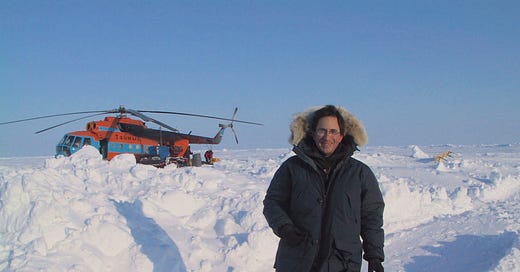


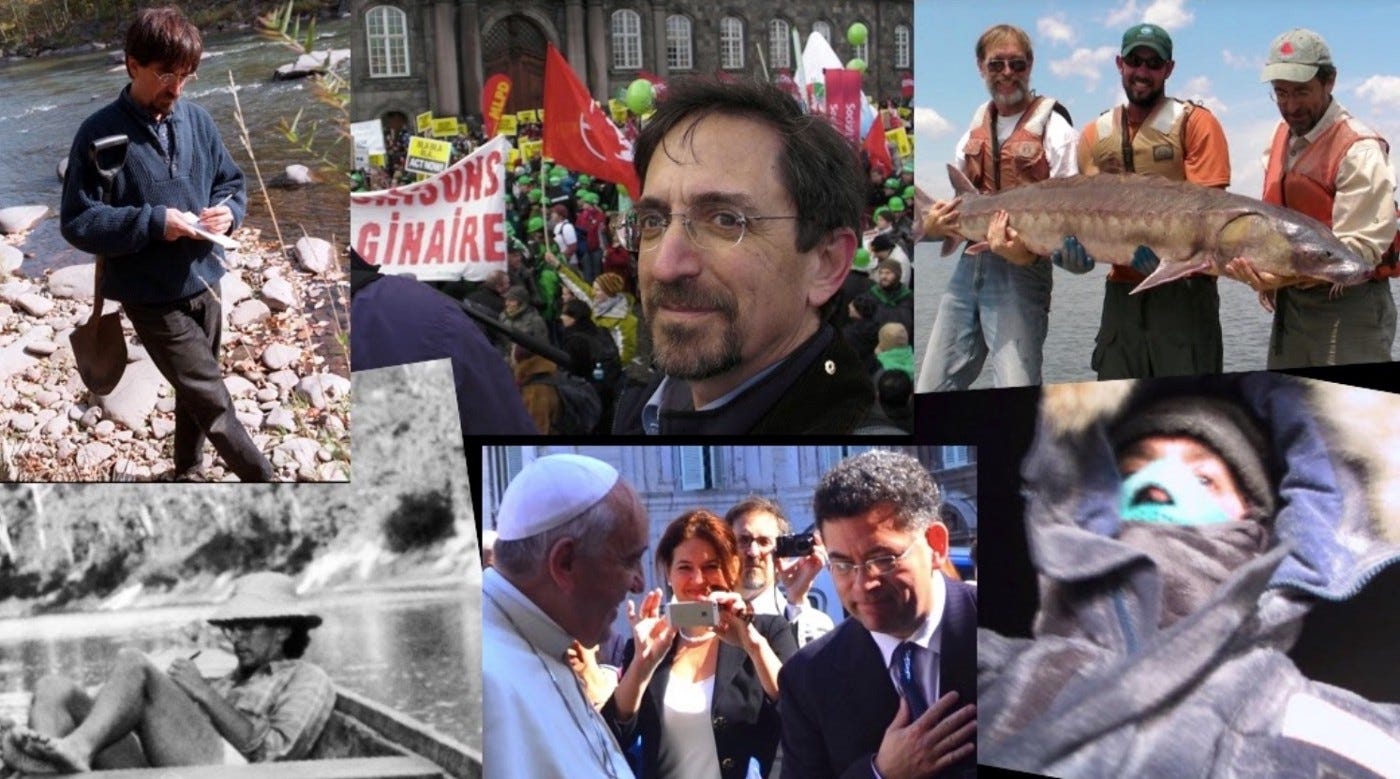
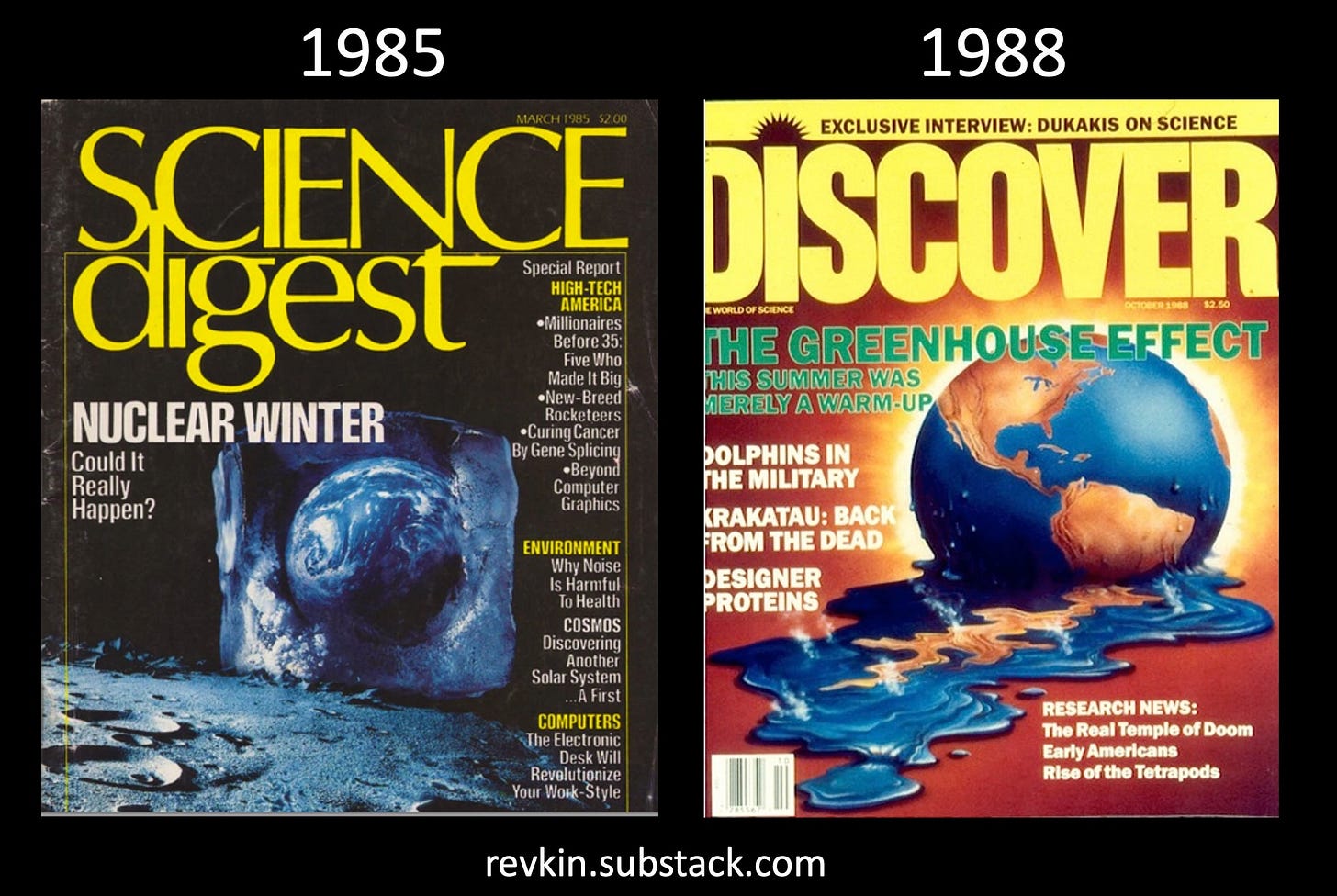
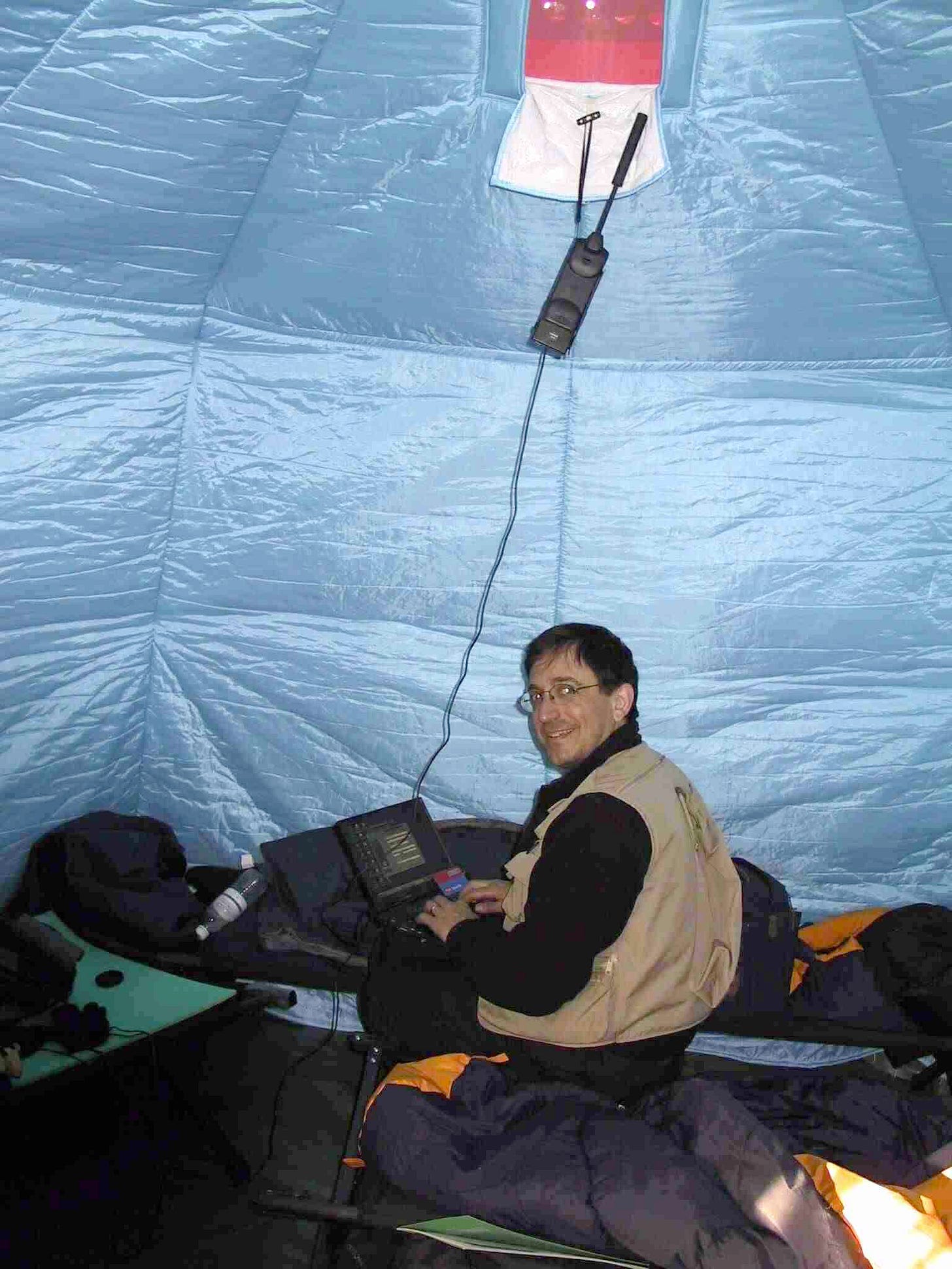
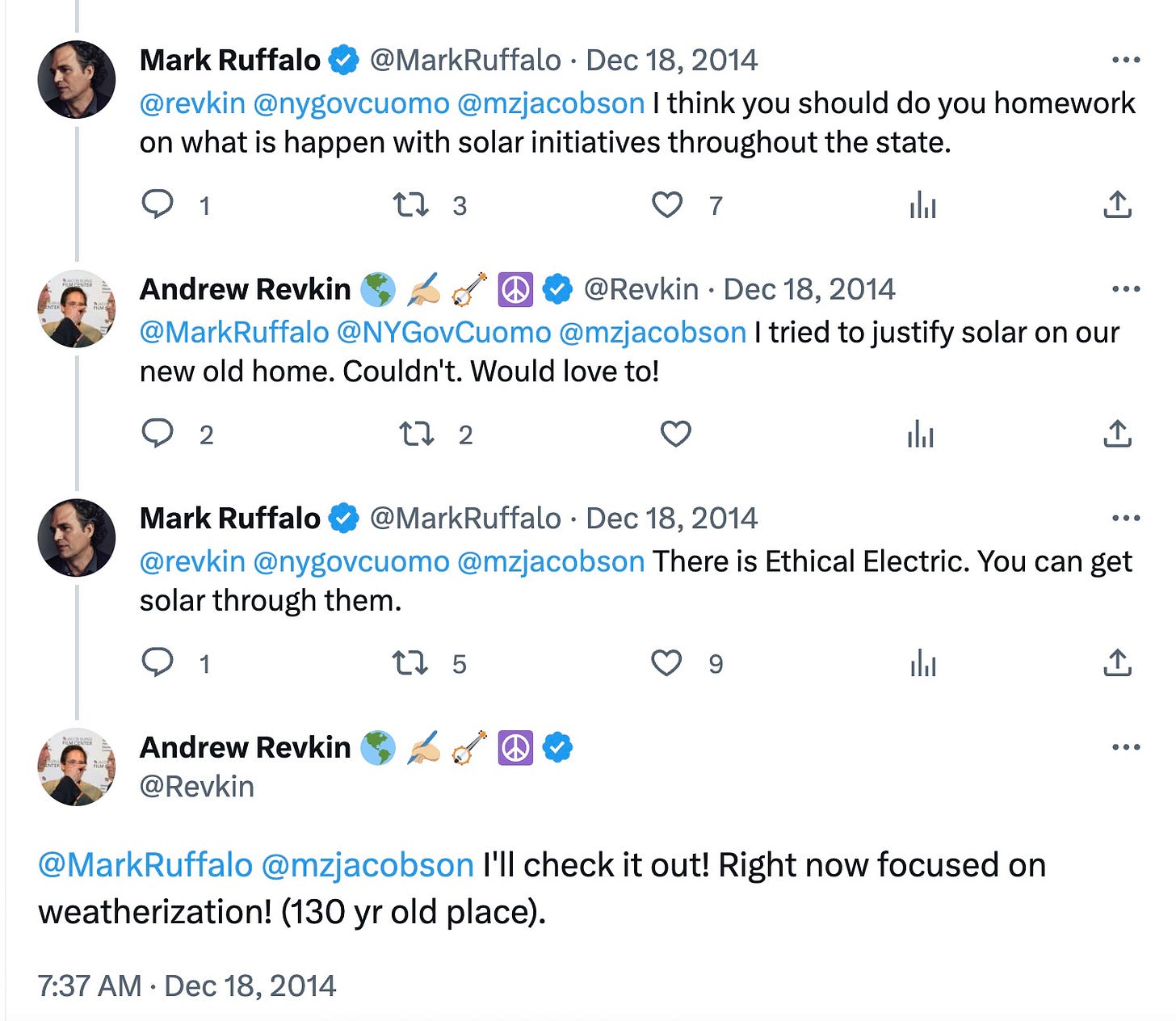
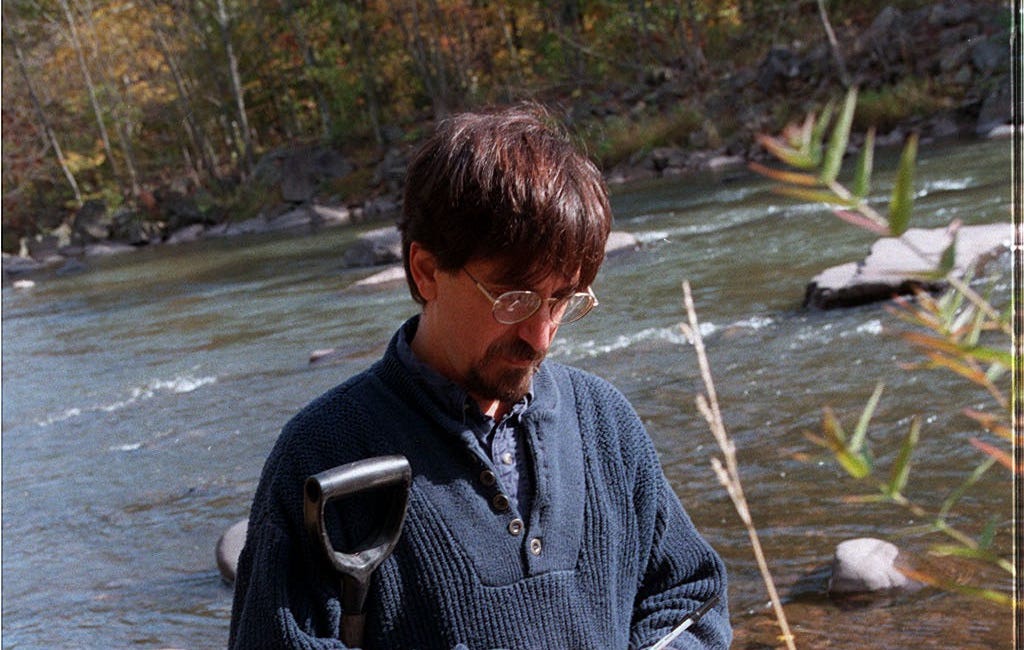
Loved reading this overview Andy. You remain a heroic figure in the real infowars that will define our ability to maintain democracy, which is the thing I still feel it is critical to sustain. Missing your presence here in Hudson Valley, and missing your music. How’s the new recording coming along?
Just read this. The thing about your journey that struck me with a figurative sledgehammer, is the reality you speak of, humanity's need for energy. I've been an environmentalist and climate-change antagonist for many years without ever thinking through that important fact. Just suddenly saw the problem from a whole different angle. Thank you!